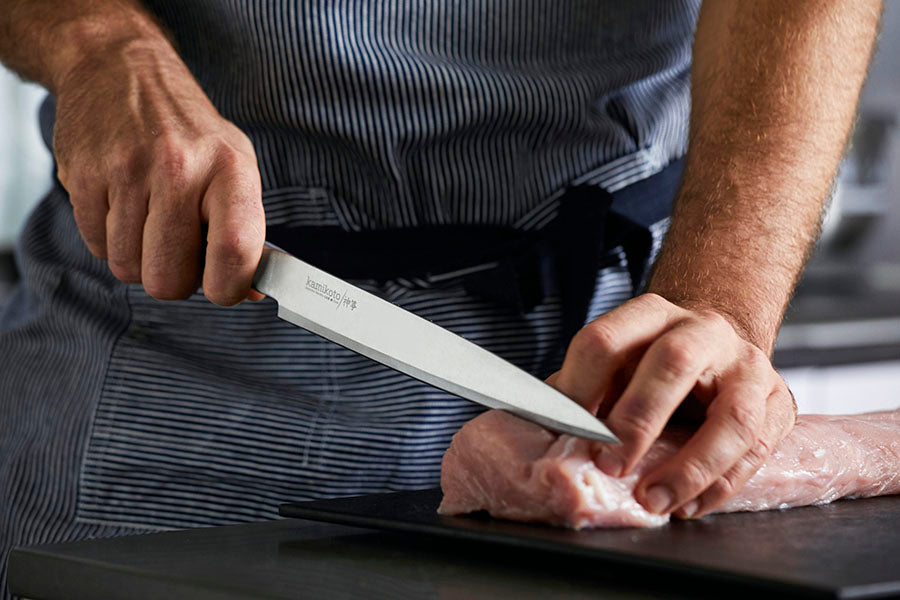
While a personal and private chef have much in common there are a few key distinctions between them - particularly when it comes to duties, hours of work and expected salary.
A Personal Chef Defined and Their Clientele
A personal chef is usually self-employed, running their own professional culinary business. They choose their own clients and pre-prepared meals in clients’ homes on a weekly or monthly basis, leaving them ready to be consumed on the day, while others are refrigerated and reheated for the remaining days.
Their clientele is mixed - families with children; busy couples; retired individuals; those on special diets, or simply people who enjoy (and can afford) fine dining in the comfort of their own homes.
A personal chef sets their own work schedule, selecting clients accordingly. Some may continue to work in professional kitchens and cook for one or two private clients to supplement their income, while others run their business full-time, juggling multiple clients and their corresponding culinary needs.
Many personal chefs work solo but depending on the nature of each job, might employ an assistant or two.
Personal Chef Duties
Duties vary according to a personal chef’s clientele. Generally speaking, the personal chef is responsible for discussing dietary needs and wishes with each client and then planning an appropriate menu. This menu may cover a week or more’s worth of food. The chef will then shop for ingredients and prepare all meals in advance in their client’s home, leaving detailed instructions for reheating and freezing.
On occasion, a personal chef may also be hired to cook and cater for formal events such as parties. A common add-on service today is in-home cooking lessons on a one-on-one or group basis.
A personal chef’s tasks include:
- Creating a customized menu in consultation with an individual client
- Shopping for all ingredients
- Preparation of meals in client’s kitchen – sometimes using their equipment but often providing their own such as a professional set of knives
- Leaving detailed instructions for clients for reheating and/or freezing
- Cleaning up kitchen
- Overseeing all aspects of their business from everyday tasks to marketing, budgeting and accounting
- Offering flexible working hours (formal events require night and weekend work)
- Holding private in-home cooking classes (optional)
Personal Chef Expected Salary
The personal chef’s rate of pay varies according to the amount of training they possess, the locale in which they work and their level of experience.
According to Payscale, as of April 2018 US-based personal chefs earn:
- $20.43 average hourly rate, or
- $43,447 average annual salary
However, these can range from $13.49 - $44.54 hourly and annual salaries from $24,109 - $79,021. These variances take into account overtime, tips and bonuses. Many personal chefs will charge a set fee according to the number of meals and servings required, but others opt to charge hourly and add the cost of food to this number.
Training for a Personal Chef
To attain the status of an in-demand and respected chef, formal training and relevant experience are required. As a guide, culinary school or a bachelor’s degree in the culinary arts are appropriate.
A personal chef needs an extensive amount of culinary knowledge to be able to customize menus to suit a wide array of customer needs. It stands to reason then that they should be well versed in multiple cooking techniques, cuisines and menu planning. In addition, most employers would expect their personal chef to have two to five years of experience working in a professional kitchen.
Once employed as a personal chef, there is a further option to gain certification through US-based trade associations such as the American Personal and Private Chef Association (APPCA) or the American Culinary Federation (ACF). While not mandatory, a Personal Certified Chef (PCC) and the Personal Certified Executive Chef (PCEC) citation is an impressive example of a willingness and dedication to further hone one’s craft.
A Private Chef Defined and Their Clientele
A private chef is employed on a full-time basis for one client in their private residence - be it a home, hotel or yacht. They are tasked with preparing all fresh meals and snacks for daily consumption by members of the household and in addition, to cook for private functions.
As they are required to be ‘on-call’, most live in the residence where they work and some even travel with their employers on holidays or business trips. Many report their clients are like family to them as they are privy to many aspects of their private life. As such, private chefs need to be able to hold confidences, be willing to accede to strange food requests and demands, and work odd hours.
Private chefs also often work in large homes which have other professional support staff such as butlers and maids. They are expected to have the requisite skills to function well in this type of team environment.
Private Chef Duties
Duties center on food preparation for the household. This normally means cooking three fresh meals per day but can encompass snacks too, as well as preparing food for formal events.
A private chef's tasks include:
- Planning weekly menu in conjunction with employer
- Shopping for ingredients
- Organizing the kitchen (keeping pantry well-stocked, taking delivery of food, keeping areas clean)
- Preparing fresh meals, serving and cleaning up
- Being on-call for snacks
- Travelling with clients (business trips, other homes, holidays etc)
Private Chef Expected Salary
Like a personal chef, the rate of pay for a private chef varies according to the amount training they have, the locale in which they work and their level of experience. The relevant wealth of their client can also factor into the amount they are paid.
According to Payscale, as of April 2018 in the US private chefs based earn $62,249 average annual salary.
However, annual salaries can range from $32,015 all the way up to $110,898 plus bonuses.
Training for a Private Chef
Much like a personal chef, a private chef should undertake formal training at culinary school or at a college to Bachelor’s level if possible. Many private chefs also have extensive experience in professional kitchens in five-star hotels or fine dining restaurants. Wealthy clients will seek out those with at least five years of work experience.
After having worked as a private chef for at least two years, one can then undertake professional certification. For more information about this, refer to the ‘personal chef training section’ as mentioned above.
Personal & Private Chefs – The Key Differences
As has been detailed, private and personal chefs share many commonalities. The differences are quite subtle but nevertheless, do remain.
A Private Chef:
- One dedicated client
- Often live in same residence as client
- Prepare fresh meals on demand
- Must be on-call/work odd hours
- Salaried employee
- May work in a team environment alongside housekeeper, butler etc
- May need to travel to different homes, on work trips or holidays
- Can develop deep, personal connection with client
A Personal Chef
- Multiple clients
- Does not live in the same residence
- Prepares meals in advance - leave instructions for clients to reheat/freeze
- Works their own set hours
- Self-employed – running their own business
- Has a business focus – deals with all aspect of culinary business from clients to marketing to budgeting to accounting
There are many paths for an aspiring professional chef to take in their culinary path. Becoming a private or personal chef is both an interesting and enjoyable one. If you think this pathway may be suitable for you, it may be worth your while learning about cooking stations in a gourmet kitchen. Many of the skills acquired in the various cooking stations are needed to become a personal or private chef. It is one step on a long, yet highly rewarding, journey.


